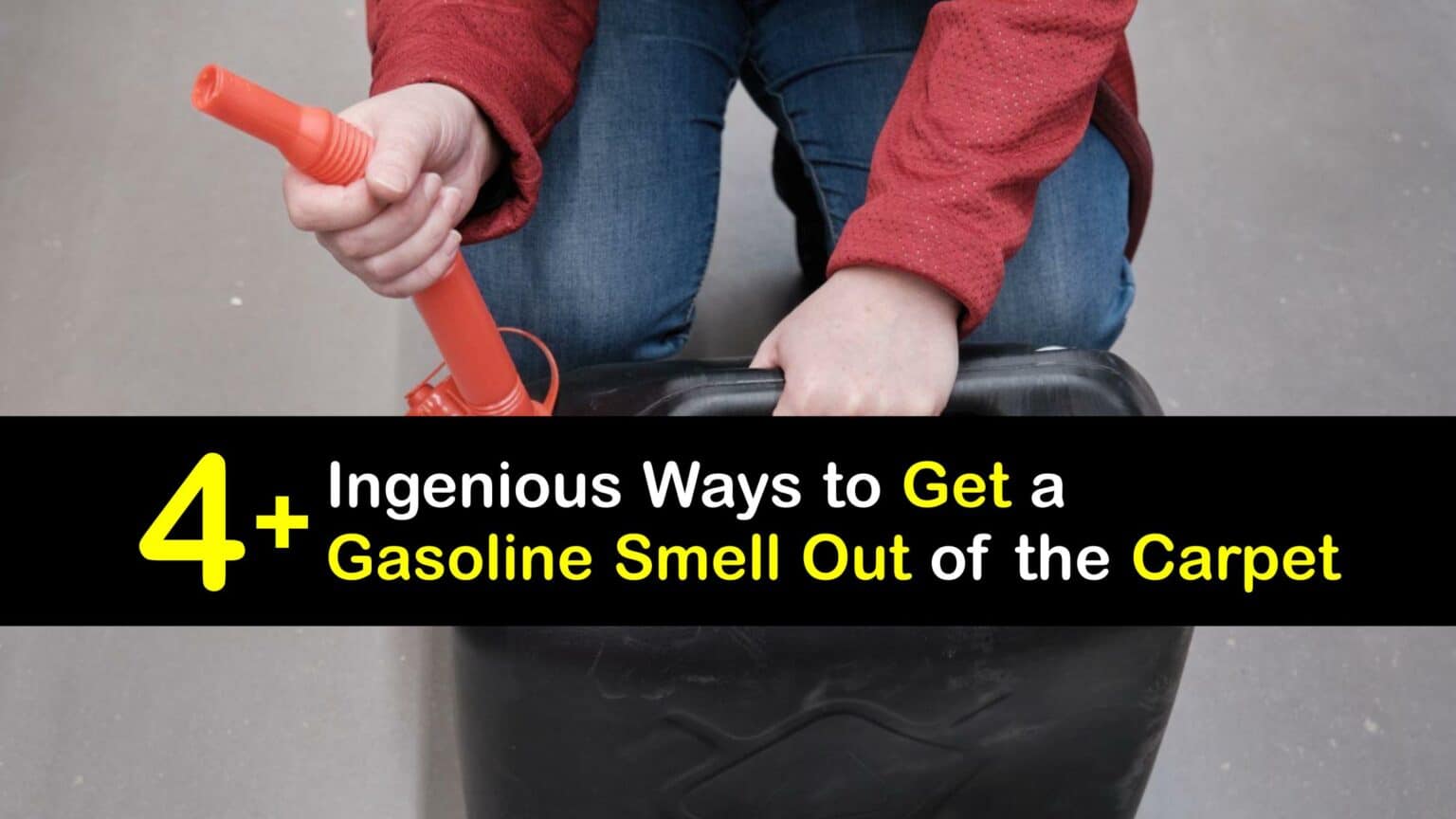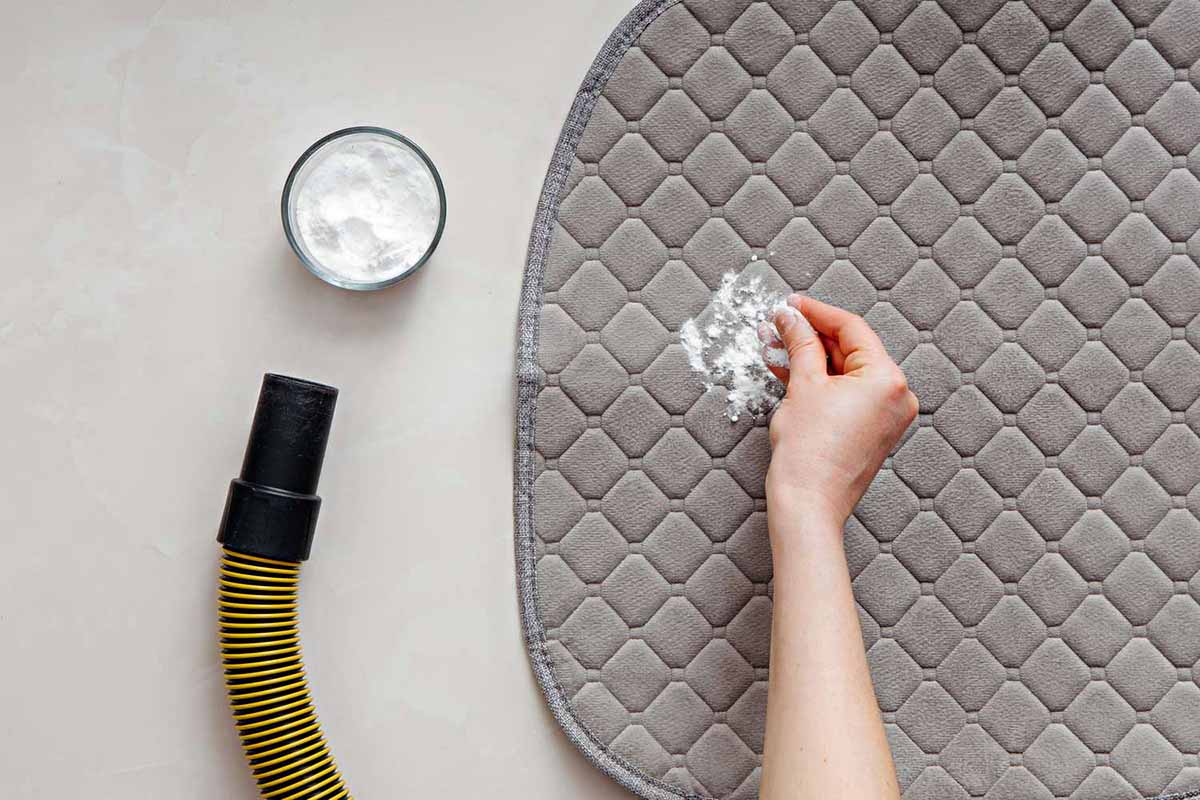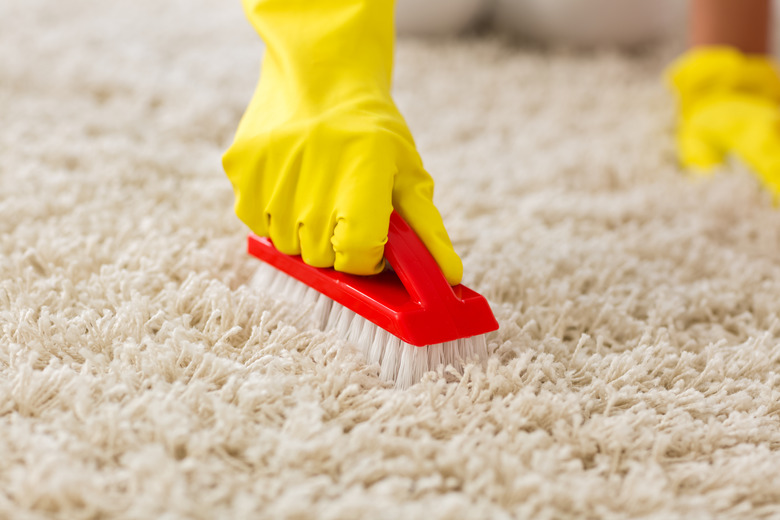How To Eliminate Gasoline Odor In Carpet

Frequently Asked Questions: Eliminating Gasoline Odor from Carpet
Gasoline spills in your carpet can be a nightmare, leaving behind a lingering and unpleasant odor. This FAQ addresses common concerns and provides practical steps to effectively eliminate that gasoline smell.
Q1: Why is gasoline odor in carpet so difficult to remove?
The persistent nature of gasoline odor stems from a few factors:
- Penetration: Gasoline is a liquid that quickly soaks deep into carpet fibers and the underlying padding, making it hard to reach and remove completely.
- Volatile Compounds: Gasoline contains volatile organic compounds (VOCs) that evaporate and release the characteristic smell. These VOCs can remain trapped within the carpet fibers for an extended period.
- Porous Materials: Carpet, padding, and even the subfloor are porous, meaning they have tiny holes that trap gasoline molecules. This creates a reservoir of odor that slowly releases over time.
- Flammability Risk: Remaining gasoline poses a fire hazard. While the odor is the immediate concern, safety is paramount.
Therefore, successful odor removal requires a multi-pronged approach that addresses both the surface and deeper layers of the affected area.
Q2: What are the first steps I should take immediately after a gasoline spill on carpet?
Acting quickly is crucial to minimize the damage and odor. Here’s what you should do right away:
- Safety First: Ensure adequate ventilation by opening windows and doors. Avoid using anything that could create a spark, such as lighters or turning on electrical appliances in the immediate area.
- Absorb the Spill: Immediately blot up as much gasoline as possible with clean, absorbent cloths or paper towels. Do not rub, as this will only spread the gasoline further. Apply firm pressure to soak up the liquid. Repeat this process with fresh cloths until you are no longer picking up significant amounts of gasoline.
- Contain the Area: Prevent further tracking by placing plastic sheeting or old towels around the affected area.
- Dispose of Contaminated Materials Properly: Place the gasoline-soaked cloths and paper towels in a sealed metal container and dispose of them according to local hazardous waste regulations. Never throw them in your regular trash.
These initial steps are vital for reducing the amount of gasoline that penetrates the carpet and padding.
Q3: What household products can effectively remove gasoline odor from carpet?
Several common household items can be used to combat gasoline odor. However, always test any solution in an inconspicuous area first to ensure it doesn't damage or discolor the carpet.
- Baking Soda: This is a powerful odor absorber. Generously sprinkle baking soda over the affected area, covering it completely. Let it sit for at least 24-48 hours (or even longer for severe spills) to absorb the odor. Vacuum thoroughly afterwards. Repeat as needed.
- White Vinegar: Vinegar's acidic properties help neutralize odors. Mix equal parts white vinegar and water in a spray bottle. Lightly mist the affected area (do not saturate). Allow it to air dry completely. The vinegar smell will dissipate as it dries, taking some of the gasoline odor with it.
- Activated Charcoal: Similar to baking soda, activated charcoal is a highly effective odor absorbent. Place bowls of activated charcoal near the affected area or sprinkle it directly onto the carpet (similar to baking soda) and vacuum after a few days.
- Enzyme Cleaners: These cleaners contain enzymes that break down the organic compounds in gasoline, neutralizing the odor. Look for enzyme cleaners specifically designed for pet odors, as these are often effective on other organic-based smells as well. Follow the product instructions carefully. Always test in an inconspicuous area first.
Remember: Persistence is key. You may need to repeat these treatments multiple times to completely eliminate the odor.
Q4: What if the gasoline spill soaked through the carpet and into the padding?
When gasoline penetrates the carpet and reaches the padding, the odor removal becomes more challenging. Here are your options:
- Padding Replacement: The most effective solution is often to replace the affected section of padding. This is because padding is highly absorbent and difficult to thoroughly clean. Cut out the contaminated padding using a utility knife (wear gloves and a mask) and dispose of it properly as hazardous waste. Replace it with a new piece of padding of the same size and thickness.
- Deep Cleaning: If replacing the padding isn't feasible, you can try a deep cleaning method. This involves using a wet/dry vacuum to extract as much of the gasoline and odor as possible. You can use a carpet cleaning machine with a specialized cleaning solution designed for odor removal. Be sure to follow the machine's instructions carefully and avoid over-wetting the carpet. Allow the carpet and padding to dry completely, using fans or a dehumidifier to speed up the process. This can take several days.
- Professional Cleaning: For severe spills or if you're uncomfortable tackling the job yourself, consider hiring a professional carpet cleaning service that specializes in odor removal. They have specialized equipment and cleaning solutions that can effectively remove gasoline odor from carpet and padding.
Addressing the padding is crucial for complete odor removal when it's been saturated with gasoline.
Q5: Are there any commercial products specifically designed to remove gasoline odor from carpet?
Yes, several commercial products are formulated to neutralize and eliminate gasoline odors. These products often contain enzymes, odor counteractants, or other specialized ingredients.
- Odor Absorbing Gels: These gels release a vapor that neutralizes odors in the air and can help to pull odors from the carpet. Place several containers of odor-absorbing gel around the affected area.
- Specialized Carpet Cleaners: Look for carpet cleaners specifically designed to remove oil-based stains and odors, such as those marketed for auto detailing or industrial use. Always read the product label carefully and follow the instructions.
- Ozone Generators: While effective, ozone generators should be used with caution and only in unoccupied spaces. Ozone can be harmful to breathe and can damage some materials. If you choose to use an ozone generator, follow the manufacturer's instructions precisely and ensure the area is thoroughly ventilated before re-entering. Do your research before using an ozone generator.
When using commercial products, prioritize safety and always test in an inconspicuous area first.
Q6: How can I prevent future gasoline spills on my carpet?
Prevention is always better than cure. Here are some tips to minimize the risk of gasoline spills in your home or facility:
- Store Gasoline Properly: Store gasoline in approved, tightly sealed containers in a well-ventilated area away from living spaces. Never store gasoline indoors.
- Handle Gasoline Carefully: When transferring gasoline, use a funnel to avoid spills. Be extra cautious when filling equipment or vehicles near carpeted areas.
- Use Protective Coverings: If you must work with gasoline near carpet, use drop cloths or plastic sheeting to protect the carpet from spills.
- Designated Work Areas: Establish designated work areas for tasks involving gasoline, ideally in areas with non-porous flooring that is easy to clean.
- Regular Inspections: Regularly inspect gasoline containers and equipment for leaks or damage.
By taking these precautions, you can significantly reduce the likelihood of gasoline spills and the associated odor problems.
Q7: When should I consider calling a professional for gasoline odor removal?
There are situations where DIY methods may not be sufficient, and professional intervention is necessary. Consider calling a professional carpet cleaning service specializing in odor removal in the following cases:
- Large Spills: If a significant amount of gasoline was spilled, especially if it saturated the carpet and padding.
- Persistent Odor: If you've tried multiple DIY methods and the odor persists after several attempts.
- Health Concerns: If the gasoline odor is causing headaches, nausea, or other health problems.
- Unknown Spill: If you suspect a gasoline spill but are unsure of the source or extent of the contamination.
- Valuable Carpet: If you have a valuable or delicate carpet that you don't want to risk damaging with DIY cleaning methods.
- Inability to Replace Padding: If the gasoline spill soaked through the carpet into the padding and you are unable to replace the padding.
A professional cleaning service has the expertise, equipment, and specialized cleaning solutions to effectively remove gasoline odor and ensure the safety of your environment. They can also assess the situation and provide recommendations for further remediation if needed.










